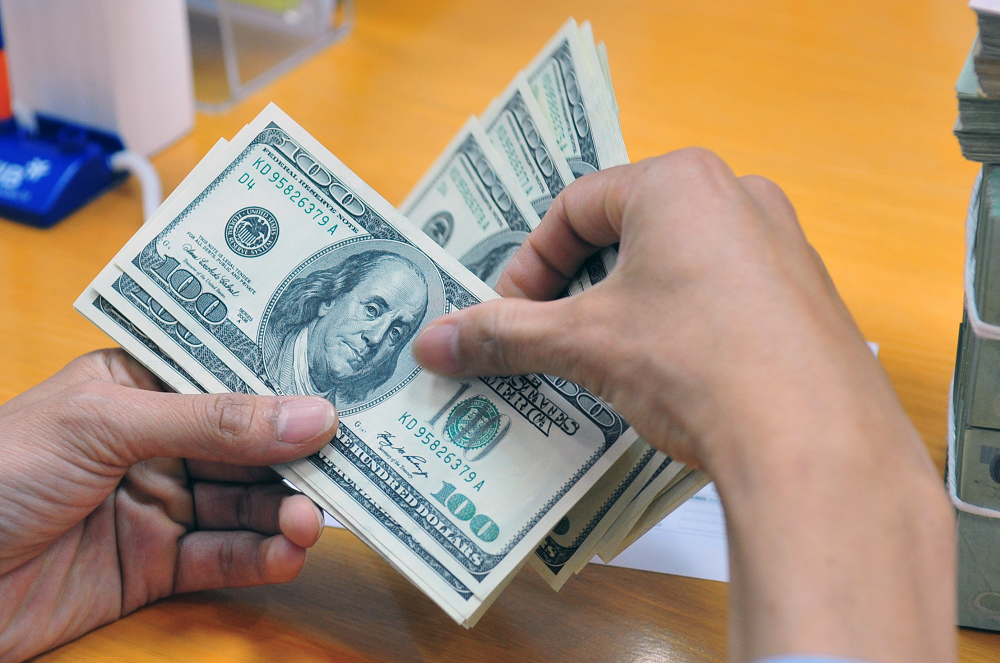On the afternoon of September 21, the State Bank unexpectedly announced the issuance of VND9,995 billion worth of 28-day treasury bills with a winning interest rate of 0.69%/year. The interest payment method for the valuable papers is one-time payment at the beginning of the term, with the maturity date on October 19.
This is the first session that the State Bank of Vietnam has resumed the forward sale service after a suspension of more than 6 months (since March 10). The move to withdraw money from the market took place in the context of the system's continuously excess liquidity in recent times.

Newly released figures from the State Bank of Vietnam also show that credit growth is still very slow, reaching only 5.56% as of September 15 (while the target for the whole year is about 14-15%) and only slightly higher than the 5.33% rate at the end of August.
In the previous meeting, Governor Nguyen Thi Hong affirmed that the State Bank is closely monitoring the exchange rate to be able to manage it appropriately. Deputy Governor Dao Minh Tu also said that if interest rates decrease, the exchange rate will likely flare up again, and it is necessary to find a balance between interest rates and exchange rates.
The reopening of the channel for withdrawing money through treasury bills by the management agency is expected to reduce excess liquidity in the system and create pressure to increase interest rates in the interbank market. This will have a positive impact on the exchange rate, which is under great pressure due to the contrast in monetary policies between the US and Vietnam.
Discussing this move to tighten monetary policy again, Mr. Huynh Minh Tuan - General Director of FIDT Investment Company - said that this is reasonable in the context of excessive liquidity in the system (interbank interest rates are at 0.15%/year); at the same time, it helps reduce pressure on exchange rates and limit exchange rate speculation.
For the stock market, this news will have a short-term psychological impact and make the market easy to adjust but not too worrying. Investors can buy once the market has reflected the information.
"Liquidity withdrawal helps stabilize exchange rates, creates a more stable recovery environment for the economy and supports the medium-term upward trend of the stock market," Mr. Tuan assessed.
In fact, the recent liquidity surplus has created pressure on the exchange rate, which has caused foreign investors to withdraw capital strongly. In the stock market, foreign investors have withdrawn more than VND4,900 billion since the beginning of September, the strongest level since the beginning of the year.

Source





























![[Photo] Gia Lai provincial leaders offer flowers at Uncle Ho's Monument with the ethnic groups of the Central Highlands](https://vphoto.vietnam.vn/thumb/1200x675/vietnam/resource/IMAGE/2025/7/9/196438801da24b3cb6158d0501984818)







































































Comment (0)